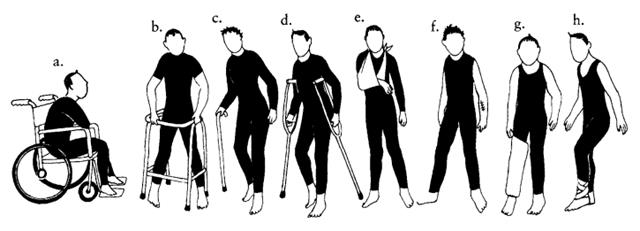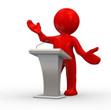
Заглавная страница Избранные статьи Случайная статья Познавательные статьи Новые добавления Обратная связь КАТЕГОРИИ: ТОП 10 на сайте Приготовление дезинфицирующих растворов различной концентрацииТехника нижней прямой подачи мяча. Франко-прусская война (причины и последствия) Организация работы процедурного кабинета Смысловое и механическое запоминание, их место и роль в усвоении знаний Коммуникативные барьеры и пути их преодоления Обработка изделий медицинского назначения многократного применения Образцы текста публицистического стиля Четыре типа изменения баланса Задачи с ответами для Всероссийской олимпиады по праву 
Мы поможем в написании ваших работ! ЗНАЕТЕ ЛИ ВЫ?
Влияние общества на человека
Приготовление дезинфицирующих растворов различной концентрации Практические работы по географии для 6 класса Организация работы процедурного кабинета Изменения в неживой природе осенью Уборка процедурного кабинета Сольфеджио. Все правила по сольфеджио Балочные системы. Определение реакций опор и моментов защемления |
E) when you come out of the hospital.
Match these descriptions with the pictures: 1. His leg’s in plaster. 2. His arm’s in a sling. 3. He’s walking on crutches. 4. He needs a walking stick. 5. His ankle’s bandaged up. 6. He had to have stitches. 7. He’s in a wheelchair. 8. He can’t walk without a lightweight metal walker. F) SPECIALISTS. Your doctor might refer you to another professional to treat a particular problem. Match the doctors with their specialty. 1. Dietician 2. Optician 3. Physiotherapist 4. Psychiatrist 5. Chiropodist 6. Pediatrician 7. Gynecologist 8. Rheumatologist.
a. You need glasses. b. You are overweight. c. You have ingrown toenails. d. You are trying to have a baby. e. You have arthritis. f. You are very depressed. g. Your two-year-old son is not well. h. You hurt your shoulder playing tennis. G) ILLNESSES AND SYMPTOMS. Match these illnesses with the symptoms below:
1. I’ve got a terrible cough and pains in my chest, and I seem to be constantly short of breath. 2. I feel absolutely awful. My temperature is 410, and I’ve got a headache and a runny nose. I’ve got a sore throat – it’s agony every time I swallow. 3. I can’t go near cats. I come out in a horrible red rash. 4. She’s been off school for two weeks now. She’s got a temperature and she’s covered in little red spots. She’s completely lost her appetite – she hasn’t eaten a thing for the last three days. 5. I think it must be something I ate. I was sick all night. I still feel sick now and I’ve got a terrible stomach-ache. 6. It’s the same every summer. My eyes get really itchy and I can’t stop sneezing. H) HEALTH AND MEDICINE. What medical problems might you have if …
1. What do you do when you are sick? Do you visit a doctor? Do you take medicine? 2. Are there any traditional medicines in your native country?
Read the text. What do lasers, leaches, tree bark, and old bread have in common? They are all things that people use to make medicine or to help sick people feel better. Throughout history people have searched for ways to live healthier and better lives. As early as 8000 B.C., people began to experiment with methods of helping sick people. Today we have the newest technology, yet we continue to look for ways to improve medicine and our system of health care. The history of medicine begins about 10,000 years ago. Scientists have found evidence that prehistoric people experimented with surgery in order to help sick people feel better. Around 2500 B.C., the Egyptians began to treat diseases. They used plants as medicine. They believed that people became sick because the gods were angry with them. In ancient Greece in 419 B.C., a man named Hippocrates realized that people became sick for natural reasons, not because the gods were angry. Many people think of Hippocrates as the first real doctor in history. During the Middle Age (400-1500 A.D.), a few medical schools and hospitals opened in Europe. Treatment methods were still very simple. Sometimes doctors used leaches to remove “bad blood” from people. Doctors did not understand the human body very well. Many very dangerous diseases, called plagues, spread through Europe at that time. Doctors could not cure these diseases, and one-quarter of the population of Europe died. Later during the Renaissance, Leonardo da Vinci made drawings of human body, including all the muscles. These drawings helped doctors greatly.
Understanding how the human body works helped doctors learn how to treat sickness and help people feel better. Modern medicine improved greatly after that time. In the last century many very important discoveries were made in medicine. These discoveries have saved the lives of millions of people around the world. For example, in 1895 a German doctor named Roentgen developed the X-ray machine. The English scientist Sir Alexander Fleming discovered penicillin, the first antibiotic, in 1928. Antibiotics are drugs that fight diseases in the body. Fleming discovered penicillin growing in mold on an old piece of bread! Other great improvements have been made in the technology of medicine. Today doctors can save people’s lives by giving them a new heart or a new kidney. Hospitals have large computers and machines that help sick people live better lives. Medicine today is very modern, but it is also very traditional in some parts of the world. In China and other Asian countries, doctors use acupuncture, a very old method of treating sickness and pain. Acupuncture uses needles to help the human body to fight pain and disease. Doctors have used this method for thousands of years, and some still use it today. It is very successful. These doctors also use natural plants as medicine. Some people believe that nature all of the cures for human problems. Others believe that technology is more helpful. Together, tradition and technology help people everywhere live better and healthier lives. Working with Vocabulary A. Focus on the Reading Choose the best word for each sentence.
1. As early as 8000 B.C., people began to _________________ with methods of helping sick people feel better. 2. Today we have the newest ______________, yet we continue to look for ways to improve medicine and our system of health care. 3. Scientists have found ________________ that prehistoric people experimented with surgery to help sick people. 4. Around 2500 B.C., the Egyptians began to ___________diseases. They used plants as medicine. 5. In ancient Greece in 410 B.C., a man named Hippocrates realized that people became sick for _____________reasons, not because the gods were angry. 6. During the Middle Ages, treatment ______________were still very simple. Sometimes doctors used leaches to remove “bad blood” from sick people. 7. Many very dangerous diseases, called ____________, spread through Europe at that time. 8. Doctors could not _____________these diseases, and millions of people died. 9. In the last century, many important __________________were made in medicine. 10. The English scientist Sir Alexander Fleming discovered penicillin, the first _____ ______________,in 1928. 11. Antibiotics are drugs that ________________diseases in the body. 12. Doctors in China have used acupuncture for thousands of years, and some still use it today. It is very _________________.
|
||||||||||||||||||||||||||||||||||||||||||||||
|
Последнее изменение этой страницы: 2016-04-08; просмотров: 826; Нарушение авторского права страницы; Мы поможем в написании вашей работы! infopedia.su Все материалы представленные на сайте исключительно с целью ознакомления читателями и не преследуют коммерческих целей или нарушение авторских прав. Обратная связь - 18.119.253.93 (0.006 с.) |

 2. SPEAKING
2. SPEAKING 3. READING
3. READING


